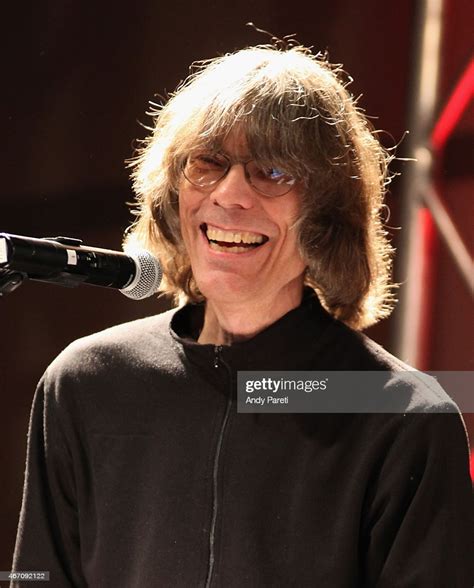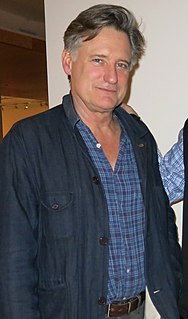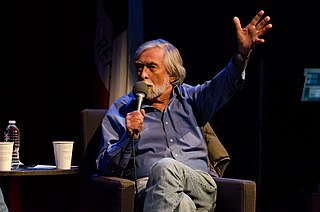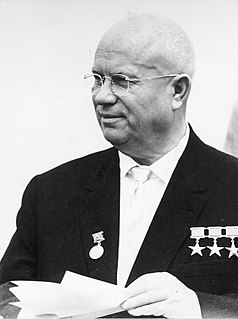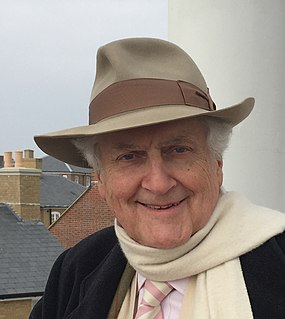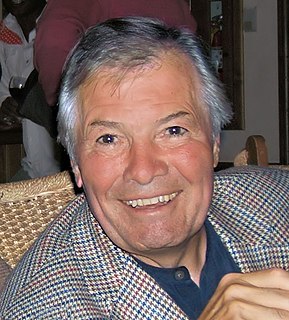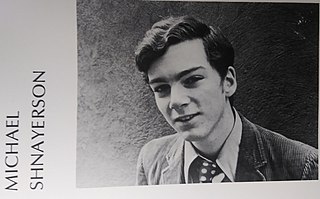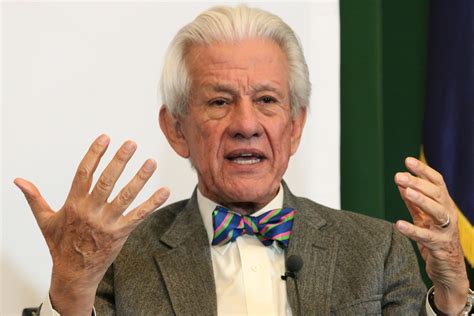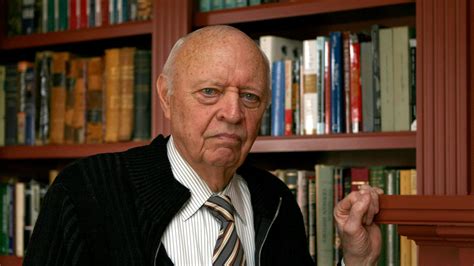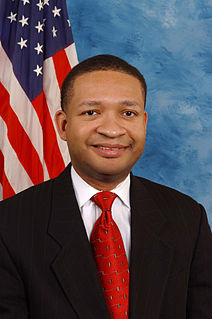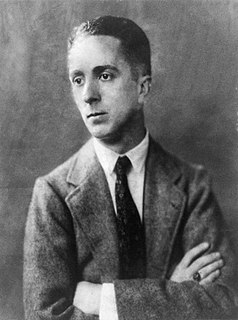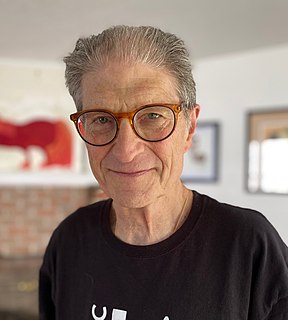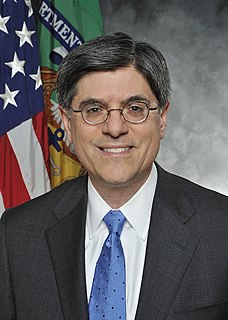Top 166 Eisenhower Quotes & Sayings - Page 3
Explore popular Eisenhower quotes.
Last updated on November 9, 2024.
With the Republicans controlling both houses of Congress, this is the Eisenhower-era revisited. It's ostrich time, where people are looking for comfort rather than challenge in their art. It's a lot easier to listen to Barry Manilow murder what are actually good songs from the '50s than to consider what [left-leaning songwriter] Steve Earle has to say.
There certainly is a pattern of administrations that have good transitions, George W. Bush to Barack Obama, and administrations that have really bad transitions, I would say Dwight Eisenhower to John F. Kennedy. I would say this is beginning to look like a bad transition, from Barack Obama to Donald Trump as they begin to argue even at the presidential level, which is more or less unprecedented.
Though Americans talk a good deal about the virtue of being serious, they generally prefer people who are solemn over people who are serious. In politics, the rare candidate who is serious, like Adlai Stevenson, is easily overwhelmed by one who is solemn, like General Eisenhower. This is probably because it is hard for most people to recognize seriousness, which is rare, especially in politics, but comfortable to endorse solemnity, which is as commonplace as jogging.
As far as Bernie Sanders is concerned, he is a decent, honest person, and I supported him. What he means by socialism is New Deal Liberalism. In fact, his actual policies would not have been a great surprise to General Eisenhower. The fact that this is called a "political revolution" is a sign of how far to the right the political spectrum has shifted, mainly in the last 30 years since the neoliberal programs began to be instituted. What he was calling for was a restoration of something like New Deal Liberalism, which is a very good thing.
I think about Laura Bush every once in awhile. She is a great supporter of the arts. I did a show at the Eisenhower Theater, and she would make a point of coming backstage. The relationship between Laura and George Bush was always that way where you felt like he was at his best behavior when he was in her company.
Kennedy was significantly different than Eisenhower before him, and different from Johnson after him. So those three years were the beginning of a détente with the Soviet Union, a new feeling for peace, a seeking out of a new ally with the Soviet Union - the end of the Cold War, as Kennedy called it in his American University speech.
Eisenhower managed to begin the Vietnam war by not following his normal instinct of staying out of mischief. In his memoirs, he tells us why we didn't honor the Geneva accords and hold elections in Vietnam: because some 80 percent of the country would have voted for Ho Chi Minh. This is very candid. The sort of thing one might have found in Stalin'smemoirs, had he not made ghosts even of ghosts.
You know, I am not a particular Kennedy apologist or an awed fan - I was 12 when he was murdered - but I have discussed Kennedy with historians. For his incredibly short tenure, he was a very important president. Many put him in the second tier, below the big three and surrounded by Truman and Eisenhower. Kennedy moved our soul. Changed our thinking about service and governance. And won big in the greatest nuclear crisis of the Cold War.
Change is healthy and useful. It has to be fought for most of the time. It's not inevitable. It takes real leadership and real effort. But I think it's really important not to take yourself too seriously. Dwight Eisenhower used to have a rule that you should always take your job seriously but not yourself.
President [ Dwight] Eisenhower warned us, five star general, he said watch out for the military-industrial complex. That's a threat to our freedom, to our economy, and what we have now is a gigantic taxpayer draining empire that is devouring itself, which, as you say, it's creating more resistance, more fighting, against us oversees.
President Roosevelt and President Truman and President Eisenhower had the same experience, they all made the effort to get along with the Russians. But every time, finally it failed. And the reason it failed was because the Communists are determined to destroy us, and regardless of what hand of friendship we may hold out or what arguments we may put up, the only thing that will make that decisive difference is the strength of the United States.
Eisenhower provided the first break in the Cold War, by bringing Khrushchev to the United States, in humanizing the Soviets; and then Nixon, by making the opening to China; and then Reagan, even meeting in Reykjavik with Gorbachev and acknowledging that nuclear weapons are a horror. So I won't accept that Republicans just escalate. Republicans, at least when they were more moderate, they were maybe even more isolationist, they sometimes brought sanity to the debate. We don't have that now. We have - all these Republicans have gone off the neoconservative deep end.
I'm not sure that the American people are looking for a lot of speeches. I think what they're looking for is action. But one of the things that I do think is important is to be able to explain to the American people what you're doing, and why you're doing it. That is something that I think every great president has been able to do. From FDR to Lincoln to John Kennedy to Eisenhower.
The truth is that many powerful guys have fooled around while working for the people. Dwight Eisenhower, John F. Kennedy, and Warren Harding to name just a few. Grover Cleveland even fathered a child outside of marriage. We all know these things happen. But we don't want them to happen - at least most of us don't. I can't speak for San Francisco.
Yes, Obama took over two wars from Bush - just as President Richard Nixon inherited Vietnam from President Lyndon Johnson and President Dwight Eisenhower inherited Korea from President Harry Truman. But at least the war in Iraq was all but won by 2009, thanks largely to the very surge Obama had opposed as a senator.
Now-what’s our game plan?” Coach Hedge belched. He’d already had three espressos and a plate of doughnuts, along with two napkins and another flower from the vase on the table. He would’ve eaten the silverware, except Piper had slapped his hand. “Climb the mountain,” Hedge said. “Kill everything except Piper’s dad. Leave.” “Thank you General Eisenhower,” Jason grumbles.
When I ran against George Bush Sr. in 1992, and we did very well in New Hampshire, and then we went on to California, it was four, five months later, I got 30 percent in the counties in Southern California, because Californians wanted us to do something about thousands of people walking into our country on weekends, and the president of the United States and the government of the United States, unlike General Eisenhower who dealt with it, did nothing. And that's what Trump is riding.
The Washington press corps thinks that Julie Nixon Eisenhower is the only member of the Nixon Administration who has any credibility--and, as one journalist put it, this is not to say that anyone believes what she is saying but simply that people believe she believes what she is sayingit is almost as if she is the only woman in America over the age of twenty who still thinks her father is exactly what she thought he was when she was six.
[My father ] came home from World War II and he voted for [Dwight] Eisenhower. He was pretty thoughtful about those things, but never, as I said, ever campaigned for anybody. He let me put a [Barry] Goldwater sticker on his pickup truck, but he never put a bumper sticker on his car. We never had a yard sign or anything in our yards, never contributed to anybody's campaign.
In 1953, the United States played a significant role in orchestrating the overthrow of Iran's popular prime minister, Mohammed Mossadegh. The Eisenhower administration believed its actions were justified for strategic reasons, but the coup was clearly a setback for Iran's political development and it is easy to see now why many Iranians continue to resent this intervention by America in their internal affairs.
No one remembers how the American people responded day-to-day, week-to-week, or month-to-month about the decisions that Presidents Franklin D. Roosevelt, Harry Truman and Dwight Eisenhower made during the most dangerous decades in American and world history. But we know now that they did what was right, and we honor them for it.
I've been a Republican since age 13, when we got our first television set, and I saw the Republican National Convention on television. And President Eisenhower was talking about personal responsibility, about opening the door for opportunity and that people could really take care of themselves without a lot of government intrusions.
Author says that, while Eisenhower had other intellectual mentors, he learned how to lead men from Gen. Walter Krueger. Krueger was the first American enlisted man to rise to four-star general, and he so identified with those he led that he once invited a sentry out of the rain and gave him his own dry uniform.
Franklin Roosevelt, Dwight Eisenhower, and Ronald Reagan each suffered through his second four years. FDR was checkmated by Congress and the Supreme Court. Ike was dogged by Sputnik and reckless charges that the United States suffered from a Missile Gap. Reagan had to wend his way through Iran-Contra.
In the 1960s, Movement Conservatives created a cast of villains. The Brown v. Board decision in 1954 and President Eisenhower's use of troops to desegregate Little Rock Central High School in 1957 enabled Movement Conservatives to resurrect old white fears that government activism was simply a way to funnel white tax dollars to African-Americans.
Well, one of the things a lot of Americans don't know, when Mitt Romney is nominated a few days from now, he will be the most experienced executive to be nominated for the presidency since Dwight Eisenhower in 1952, who had run a university and had run the allied war effort. That's actually a big deal.
We had the clip of [Donald] Trump saying: I'm not president of the globe. I'm president of the United States.[Ronald] Reagan would have never said that. [Dwight] Eisenhower would have never said that, because he would have said, yes, I'm president of the United States, but it's in our interests to be securing a world order.
Eisenhower's career demonstrated how it is possible to fool all the people all the time...'I may be stupid,' he once said at a press conference, 'but at least I'm sincere!' Actually, he was neither, but it suited his purpose to play the part of the bumbling man of good will who was 'not an expert in these matters' but somehow would do his best.
We have to remember that literally within months after Castro's taking office the planes from Florida were beginning to bomb Cuba. Within a year, the Eisenhower administration secretly, but formally, decided to overthrow the government. Then came the Bay of Pigs invasion. The Kennedy administration was furious about the failure of the invasion and immediately launched a major terrorist war and economic war that got harsher through the years. Under these conditions it is kind of amazing that Cuba survived.
During his last 18 months in office, Eisenhower flew to Asia, Europe, and Latin America and deployed his war hero's popularity to seek new friends for America while trying to improve relations with Moscow. By the time Ike left office, most Americans had forgotten their anger over losing the space race to the Soviets.
The smell of death overwhelmed us even before we passed through the stockade. More than 3200 naked, emaciated bodies had been flung into shallow graves. Others lay in the streets where they had fallen. ... Eisenhower's face whitened into a mask. Patton walked over to a corner and sickened. I was too revolted to speak. For here death had been so fouled by degradation that it both stunned and numbed us.
Absorbing. . . . Scrupulously reported . . . illuminates today’s Middle East. . . . The ‘least interventionist of any modern president,’ the father of the Eisenhower Doctrine that still defines US policy in the Middle East . . . in 1956 battled demons in bodies personal and politic and in the desert – and prevailed. Nichols’ book, written lean enough to allow the facts to speak for themselves, makes for exciting history.
In the budget, the president will call for a five-year freeze on discretionary spending other than for national security. This will reduce the deficit by more than $400 billion over the next decade and bring this category of spending to the lowest share of our economy since Dwight Eisenhower was president.
Three American presidents-Dwight D. Eisenhower, John F. Kennedy, and Lyndon B. Johnson-have asked the question: What do we get from aiding Pakistan? Five-Jimmy Carter, George H. W. Bush, Bill Clinton, George W. Bush, and Barack Obama-have wondered aloud whether Pakistan's leaders can be trusted to keep their word.
